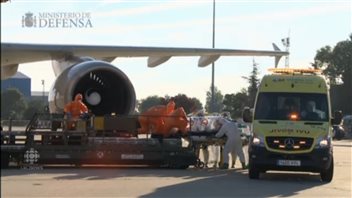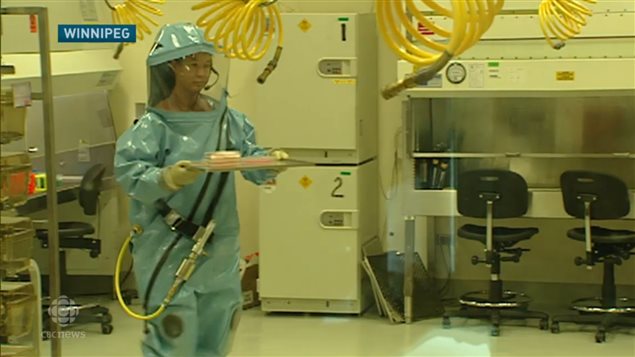Since the United Nations’ health agency declared the Ebola outbreak so serious that it would be ethical to use unproven drugs and vaccines, Canada has responded by offering up to one thousand experimental vaccines.
Canada adds funding
Canada will give the World Health Organization $185,000 on top of earlier funds for a total of $5.2 million to help respond to the outbreak of the deadly disease in West Africa.

Normally drugs and vaccines have to undergo rigorous testing in humans before they are made available to the public. But in the current Ebola crisis, three westerners were given Zmapp, an experimental therapy. Two are recovering and one has died.
This raised some complaints that westerners were being offered therapy, while Africans made up the majority of sufferers. By the same token, if drugs and vaccines are given to Africans there could be future complaints that they have been used as guinea pigs.
Who to vaccinate?
Deciding who will get the vaccines will be a thorny issue indeed. Health care workers have been disproportionately infected making up close to 10 per cent of all cases. It could be argued they need to be protected in order to be able to take care of sick people. Some African hospitals have closed because staff have become ill or died or are just too frightened of catching Ebola to come to work.
The Canadian vaccine is one of only two that have been developed. In primates it seems to not only prevent infection, but to stave off severe disease if given early enough. The cost of producing this first batch was between $1,000 and $1,400 per dose.







For reasons beyond our control, and for an undetermined period of time, our comment section is now closed. However, our social networks remain open to your contributions.